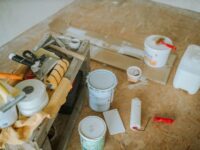The following contribution is from another author.
Not every natural disaster comes with a bang. Some, like floods, bring devastation in an almost serene manner. But don’t let their slow pace lull you into a sense of security. Floods are perfectly capable of inflicting enormous amounts of damage, not only in terms of physical property but also through a toll they often sadly take on human lives. Those unfortunate enough to witness their full power may find themselves entirely cut off the grid, with all the local infrastructure and power supply all but destroyed by the indifferent tide of water.
Although there is no way to influence the disaster itself, what you can do is prepare your house accordingly for this calamity. By taking several critical steps, including purchasing a gas-powered generator, paying attention to flood alerts, elevating electrical appliances, relocating your valuables to the upper floors, investing in ham radio, and ensuring that every room has a first aid kit, you can vastly increase your chances of surviving this terrifying experience. Read on and learn that floods don’t have to be deadly!
Consider Purchasing a Gas-powered Generator
Generators are excellent sources of power because of the efficiency of the fuel they utilize to generate it. They can use gasoline, propane, natural gas, or diesel fuel. Thanks to this versatility, generators can be used for a variety of applications like powering refrigerators and freezers, light fixtures, and even heating.
Gas-powered generators are some of the most reliable and efficient generators on the market. They will be able to provide you with power even in the event of a prolonged blackout, so they are definitely worth considering when preparing your home for a flood. The best part is that you don’t have to worry about refilling the generator with fuel because it can work directly from the gas supply in your house. Check out online stores like Premier Generator for your generator needs.
Alternatively, you can opt for one of the 10 best dual fuel generators on the market today. This way, you can choose your fuel source based on fuel availability and keep your generator running for a more extended period.
Elevate Electrical Appliances
One of the most important things you can do to prepare for a flood is elevating your appliances. It means placing them on tables, chairs, or any other elevated surface.
The reason for this is that during a flood, water can surge into your home and cause electrical appliances to short-circuit and potentially start a fire. To prevent this, place all of your electronics as high as possible. This way, you can protect them from water and other potentially damaging elements and keep them in good condition.
You will also want to ensure that every outlet is secured so that water cannot enter your electrical system. After all, water and electricity don’t mix.
Keep Your Valuables In the Upper Floors
When preparing your home for a flood, you must move your valuables to the highest level possible. This is because floodwaters are often filled with debris and can easily damage items on lower levels. So be sure to store any valuables you have in an upstairs room where they will be safe from the power of a flood.
Also, you should consider building up your home by adding extra floor space with a second-story addition. Doing this will allow you to store your most precious belongings in a place that is far from the reach of floodwaters.
Get a Ham Radio
In the event of a flood, your cell phone service will likely be down. But this doesn’t mean that you will no longer be able to communicate with others after the disaster has passed. Thanks to ham radios, you can still get in touch with outside help. These devices allow you to maintain contact with local first responders and emergency services, as well as nearby relatives and family members.
Ham radios are often a lifesaver during catastrophic events such as floods since they allow you to get in touch with people who have boats or large trucks that can help you evacuate the area when necessary. Even if there are no first responders around, you can still use ham radios to contact the Coast Guard or any other maritime agency that may be able to help pull you out of the floodwaters.
Keep First Aid Kits In Every Room
Finally, you should keep first aid kits in every room in case someone gets hurt during the flooding. It’s also wise to buy a first aid manual and read it thoroughly so that you know how to respond in case of an emergency. Not only will this help you keep a clear head in case something goes wrong, but it will also let you take control of the situation instead of panicking and doing something you might later regret.
Conclusion
Floods are natural disasters that can come with little warning and cause havoc to those who are unprepared. As such, you should do your best to make your house an impenetrable fortress for water waves. By getting your home ready for a flood, you can significantly reduce the danger posed to you and increase your chances of surviving without serious injuries or worse.
So, be sure to take the steps we mentioned into account when preparing your home for a flood. After all, even if you don’t get hit with it this year, it may come eventually. And when it does, it is best to be prepared as much as possible. Good luck!

















It’s time to roll up the rugs and stack the furniture and electronics on top of them. tether down heavy objects like refrigerators and freezers to the ground so they don’t float away. Place your electrical appliances on top of the rest of your household furniture. The use of sandbags to block off floor drains and toilets can prevent sewage from backing up into buildings.